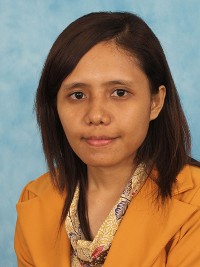Community resilience in the 2011 flood disaster in a remote
area of eastern Indonesia
Introduction
Community capacity contributes to the flood disaster management process. Community capacity has been defined as a community perception related to the causes and impacts of flooding in terms of the strength of the community to face, overcome, and minimize the risk of floods.
Capacity in the area encompasses local decision making and behavioral choices regarding flood disaster management. This research poses three questions: i) What capital or assets do the communities have that can support their resilience to flooding? ii) How do the communities use their various forms of capital or assets to cope with flooding? iii) Do coping mechanisms support community livelihoods in the long term?
Methodology
Case studies of the villages of Lasaen, Umatoos, and Fafoe in the Belu Regency of East Nusa Tenggara Province, Indonesia, were used to explore these questions. The selected case study areas are three of the most flood-prone in the province. The area is hit by river flooding in every rainy/wet season and also in the dry season. The research analyzes data collected using a participatory approach. The data regarding community disaster resilience, in particular on community capital or assets (i.e., human, natural, social, economic, physical, legal, political, and cultural) were obtained through in-depth semi-structured interviews with 60 respondents and Focus Group Discussions (FGD).
Conclusion
The study shows community self-perception in response to flooding to be non-erosive in terms of each type of capital. Coping mechanisms are applied by the community both ex ante and ex post, but mainly the latter.
Coping well with flooding, although this enables community livelihoods to be supported in the long term, is still inadequate. The results of the case study analysis, taken together with an analysis of wider institutional factors resulted in recommendations on building political and legal capital that must be assessed and implemented by the relevant institutions in order to improve community flood resilience and community sustainable livelihood in the region. Indeed, experience in the area to date indicates that issues of accessibility and access to information may be critical, and political capital may be an important source of resilience.
Supervisors
Junko Mochizuki and Adriana Keating, Risk, Policy and Vulnerability, IIASA
Note
Sherly da Costa, of Friedrich-Schiller-University, Germany, is a citizen of Indonesia. She was funded by IIASA’s Indonesian National Member Organization and worked in the Risk, Policy and Vulnerability (RPV) Program during the YSSP.
Please note these Proceedings have received limited or no review from supervisors and IIASA program directors, and the views and results expressed therein do not necessarily represent IIASA, its National Member Organizations, or other organizations supporting the work.
Further information


